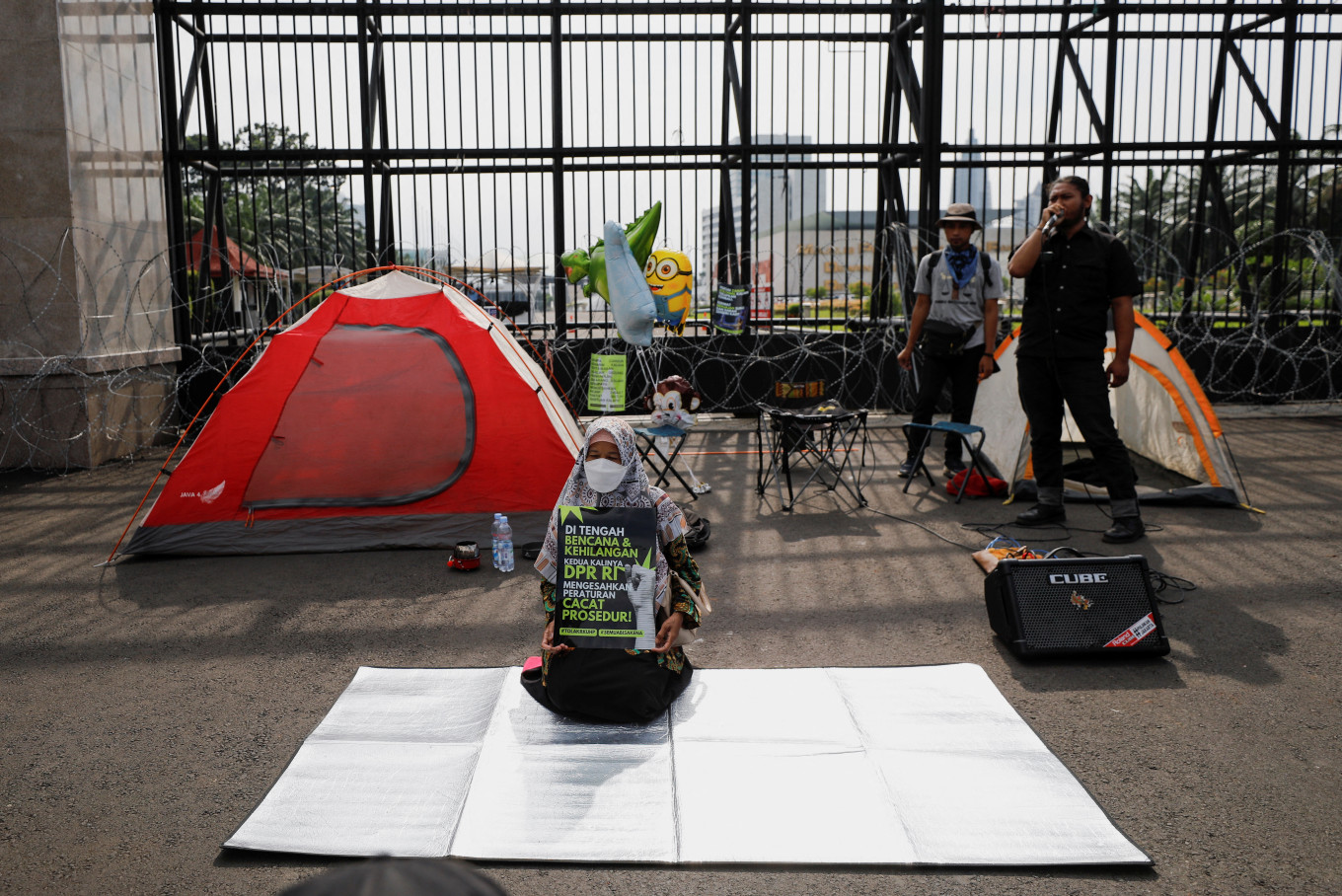Popular Reads
Top Results
Can't find what you're looking for?
View all search resultsPopular Reads
Top Results
Can't find what you're looking for?
View all search resultsNew Criminal Code violates women’s rights
The new KUHP threatens women's rights and civil liberties, and is in direct contravention of Indonesia's legal obligations to uphold international human rights.
Change text size
Gift Premium Articles
to Anyone
 A woman holds up a sign during a protest on Dec. 6, 2022 outside the Senayan legislative complex in Jakarta, after the House of Representatives approved the new criminal code (KUHP) that bans sex outside marriage, unmarried cohabitation, insulting the president, and expressing views contrary to the national ideology. (Reuters/Willy Kurniawan)
A woman holds up a sign during a protest on Dec. 6, 2022 outside the Senayan legislative complex in Jakarta, after the House of Representatives approved the new criminal code (KUHP) that bans sex outside marriage, unmarried cohabitation, insulting the president, and expressing views contrary to the national ideology. (Reuters/Willy Kurniawan)
T
he women of Indonesia, the third-largest democracy in the world, are facing grave threats to their democracy and civil liberties. In clear contravention of Indonesia’s obligations under international human rights law and the country’s Constitution, the House of Representatives has passed a new penal code that criminalizes “moral offenses”.
Article 411 (1) of the new Criminal Code (KUHP) expands the existing crime of perzinahan (adultery) and criminally proscribes premarital or extramarital sexual intercourse between two consenting adults, regardless of marital status. This is a significant expansion of the old penal code, which limited the “crime” of adultery to consensual sexual relations between two individuals wherein one of the parties is legally married to a different individual, though this is on its own already a violation of Indonesia’s obligations under international human rights law.
Under the new Criminal Code, the sentence for adultery has likewise been increased to a maximum of 12 months of imprisonment (under the old penal code, the maximum sentence for adultery was nine months), or a fine of up to a maximum Rp 10 million (US$640).
The new Criminal Code has also introduced the “crime” of cohabitation outside the confines of legal marriage, and has made it punishable upon conviction with a fine or imprisonment of up to six months.
Pursuant to the old penal code, only legally married individuals could be charged with adultery based on complaints filed with the police by an “aggrieved spouse”. In the new KUHP, prosecution of both adultery and cohabitation may be initiated by the purportedly “offended spouse”, or the parents and children of either “offending party” by filing a complaint with the police.
Regrettably, Indonesia has missed the opportunity to bring its domestic criminal law into compliance with its international human rights law obligations, including those under the Convention on the Elimination of All Forms of Discrimination against Women (CEDAW), which the country has enacted in its domestic legal order through Law No. 7/1984, and the International Covenant on Civil and Political Rights (ICCPR), which Indonesia has domesticated through Law No. 12/2005.
Harkristuti Harkisnowo, senior professor of criminal law at the University of Indonesia and one of the drafters of the new Criminal Code, has commented that the legislation reflects the country’s national identity as the largest Muslim-majority nation in the world.


















